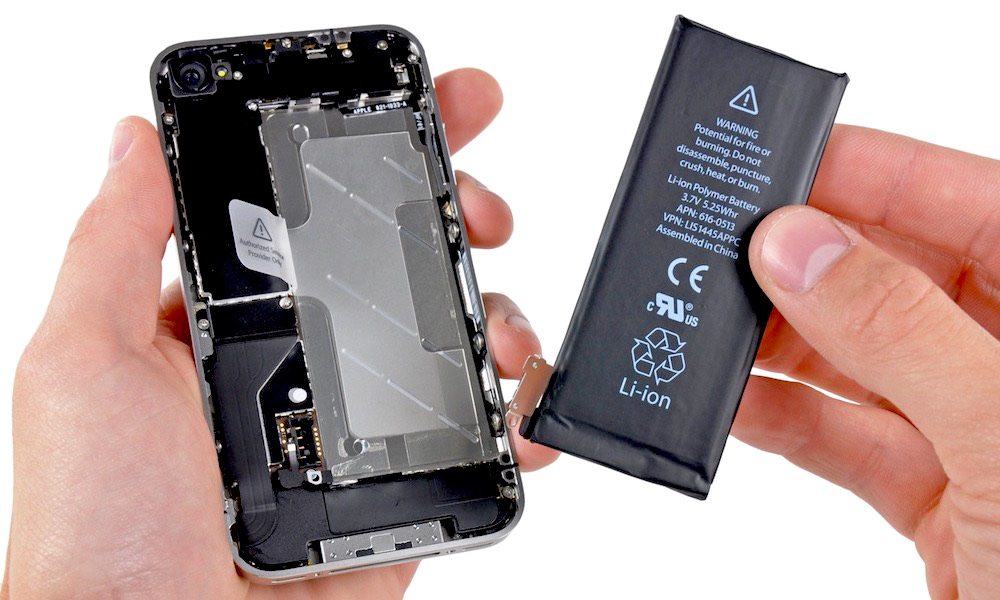New Report Claims Apple’s Battery Suppliers Are Using Cobalt Mined by Child Laborers

Toggle Dark Mode
A new report suggests that Cobalt, an important mineral that is present in the batteries that power electronic devices, such as Apple’s iPhone, is being mined by children in the Democratic Republic of Congo, Central Africa.
Published on Monday as a joint effort between Amnesty and the DPR not-for-profit, Afrewatch, the report alleges that children as young as seven are being commissioned to mine for Cobalt, which then makes its way into the supply chains of big tech companies such as Apple, Samsung, and others, in addition to electric car makers like Daimler and Volkswagen.
According to the report, mineral traders in the region purchase Cobalt from smaller producers, prior to flipping and selling the mineral to a company known as Congo Dongfang Mining (CDM) — which is a subsidiary of the large Chinese mineral supplier Zhejiang Huayou Cobalt, Ltd.
At this point, the cobalt supply moves on to three of the largest battery manufacturers in China and South Korea, and, accordingly, trickles down to consumer products — such as smartphones and laptop computers, which are ultimately sold by major brands around the world.
As part of their investigation, Afrewatch and Amnesty interviewed 87 current and former cobalt miners last year — among whom were 17 children — who are or were affiliated with one of five regional mines in the DRC. As it stands, Cobalt is not defined as a “conflict mineral” by U.S. standards, and therefore, corporations are not obligated to publish supply chain reports in regards to mining sources.
In other words, there is very little, if any, regulation of the worldwide market for Cobalt mining; corporations are essentially responsible for monitoring and enforcing their own suppliers.
As a result of the findings, Amnesty and Afrewatch are calling on large companies in the tech and automotive sectors to utilize lithium-ion batteries as a way of conducting their own human rights due diligence, in addition to auditing their existing supply chains.
Apple reached out to Amnesty, for its part, claiming that it was unable to determine the origin of the cobalt used in its batteries. The Silicon Valley tech-giant also indicated that it could not confirm a connection to CDM or Huayou Cobalt. Sure enough, other multinational tech manufacturers followed suit, providing similar claims, which noted that it’s either very difficult, or even impossible, to trace material sources back to the DRC.
Apple provided the following statement to BBC on Monday:
“Underage labour is never tolerated in our supply chain and we are proud to have led the industry in pioneering new safeguards. We are currently evaluating dozens of different materials, including cobalt, in order to identify labour and environmental risks as well as opportunities for Apple to bring about effective, scalable and sustainable change.”
Apple, the world’s largest tech company by volume, has been heavily scrutinized for years, specifically when it comes to human rights violations. The company, in response to criticism, has developed and implemented a comprehensive supply chain monitoring system — subject to a rigorous set of guidelines, annual evaluations, and even special funding initiatives to ensure adequate living conditions for international workers.
The company launched an investigation into underage worker claims in 2010, for example, when light was shed on discrepancies relating to so-called “Supplier Responsibility Reports” in 2013. In light of these findings, Apple imposed major sanctions on, or, in some instances, ceased to do business with firms in violation.
According to Apple, when a supplier is found to be in violation of protocols, it forces the company in question to pay for the employee(s) to return home, as well as finance an education program selected by the employee or their family and continuing to pay out wages and offer them a job when they become of legal working age.
Apple has a fairly substantial amount of leverage and influence, being the world’s largest tech company, so it should come as little surprise that it’s in a unique position to demand such strict regulation of its supply chains.
Learn More: Apple Could Be Facing an $8 Billion Tax Bill in Europe







